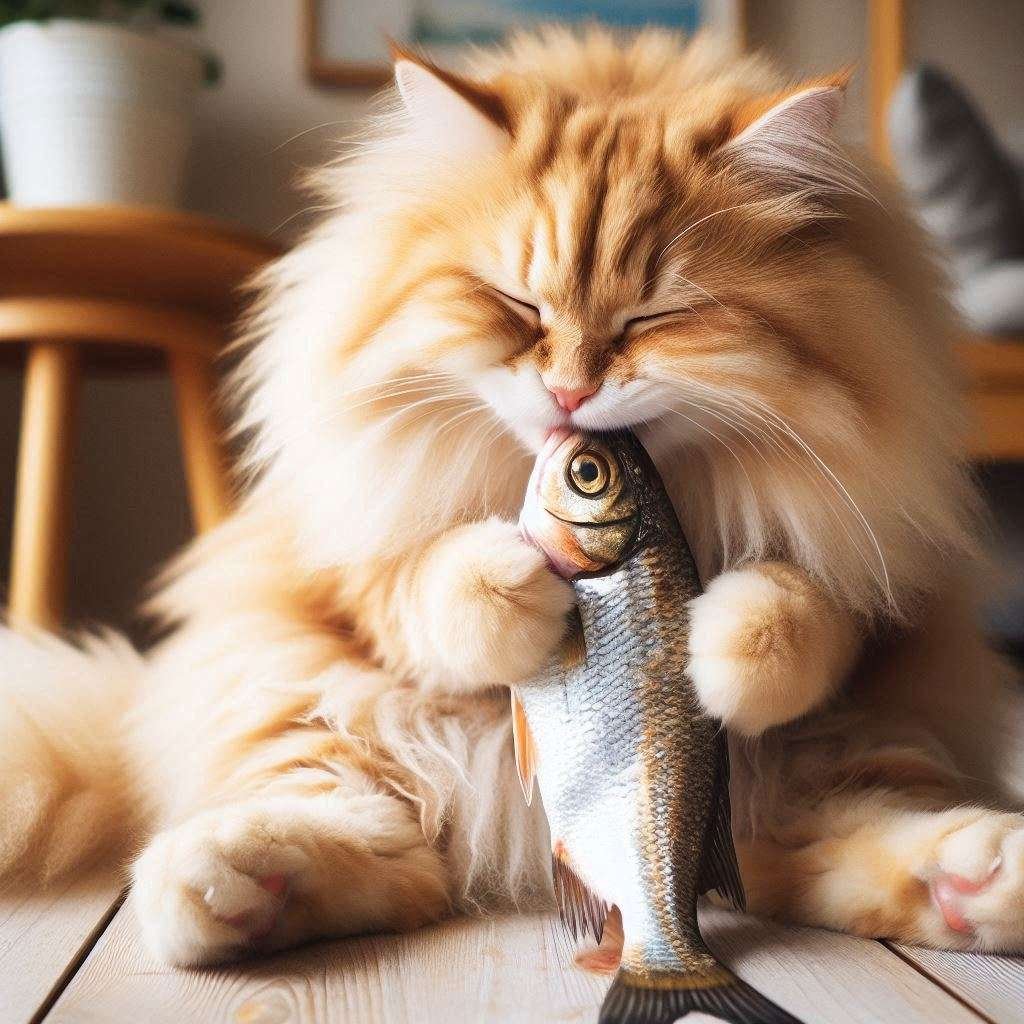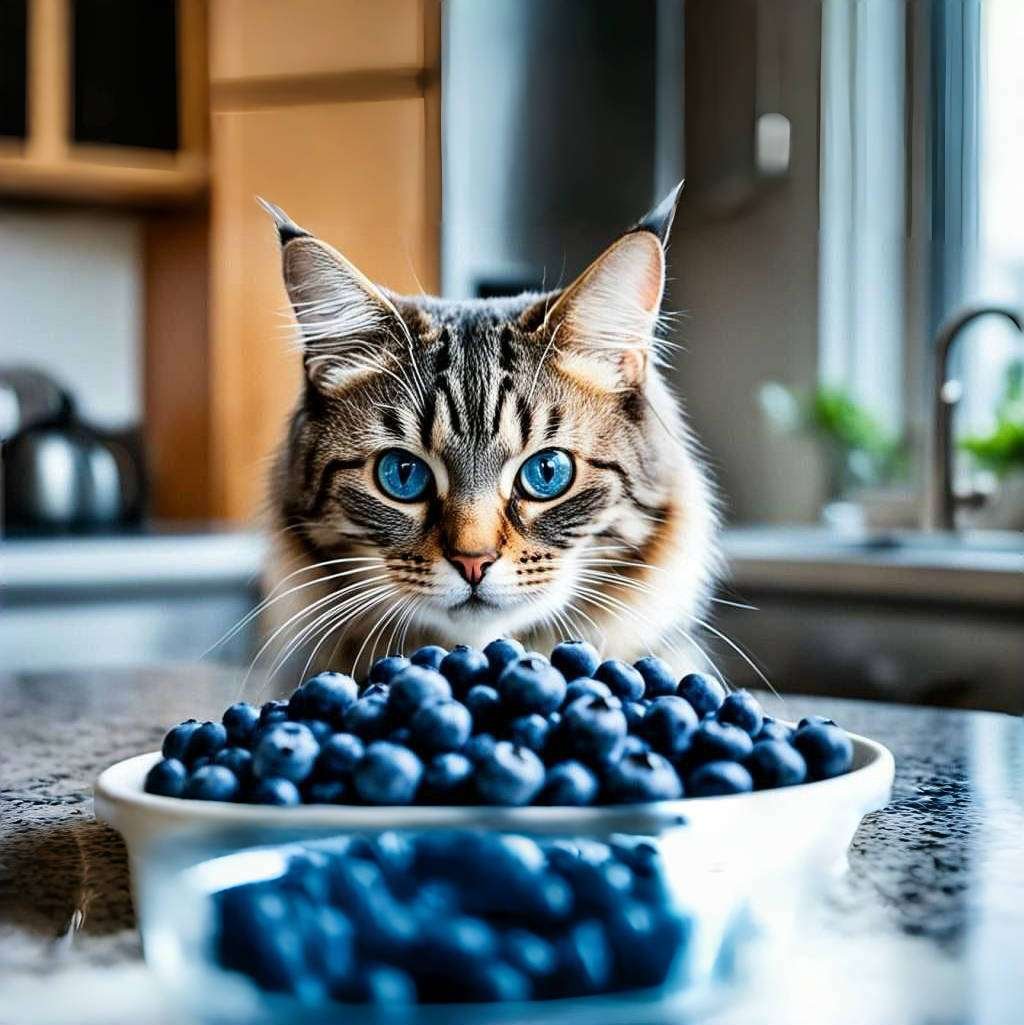Can cats eat raw egg? Many cat owners wonder if eggs are safe and healthy for their pets. Eggs can be good for cats, but there are things to think about. This article will look at the good and bad of giving cats raw, cooked, and even eggshells. It will also talk about how much to give and when to ask a vet.
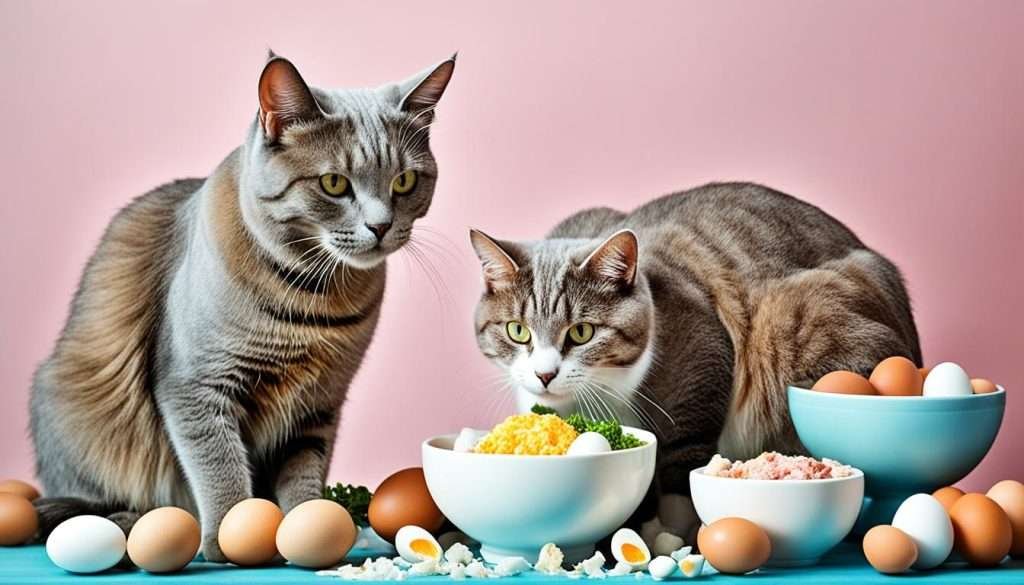
Key Takeaways
- Cats should not be given more than one full egg per day.
- Consult a veterinarian to determine the safe serving size of eggs based on factors like age, size, breed, activity level, and existing medical conditions.
- Raw or undercooked eggs should not be fed to cats to prevent the risk of contracting Salmonella.
- Boiled eggshells can be a good source of calcium for cats.
- Eggs should only account for no more than 10% of a cat’s daily calorie intake.
Introduction to Feeding Eggs to Cats
Cats need a diet mainly of animal proteins because they are obligate carnivores. Eggs can be a great addition to their diet. They give cats high-quality protein, fats, vitamins, and minerals.
Cats’ Dietary Needs and the Role of Eggs
Cats need animal-based nutrients to stay healthy. While commercial cat food is key, eggs can add extra benefits. Eggs are packed with essential amino acids, vitamins, and minerals. These support a cat’s health.
Benefits and Risks of Feeding Eggs to Cats
- Eggs help with healthy skin and coat, and support the immune system.
- But, eggs can cause digestive problems and weight gain because they are high in fat and calories.
- It’s important to feed eggs in moderation. They shouldn’t replace a cat’s main diet.
Always talk to a vet before adding eggs to your cat’s diet. Each cat is different and may react differently to eggs.
“Eggs can be a valuable supplemental food for cats, but they should never replace a cat’s complete and balanced commercial cat food diet.”
Are Cooked Eggs Safe for Cats?
Cooked eggs, like scrambled or boiled, can be a safe and healthy treat for cats. They are a great source of protein and essential nutrients. But, make sure the eggs are cooked well and don’t have any extra seasonings or fats that could harm your cat.
Preparing Scrambled or Boiled Eggs for Cats
When giving cooked eggs to cats, make sure they’re cooked to an internal temperature of 160°F. This kills salmonella, a harmful bacteria in raw or undercooked eggs. Cats should get plain, unseasoned eggs without oils, butter, or other fats that can make them gain weight or have health issues.
Avoiding Seasonings and High-Fat Egg Preparations
While cats can have cooked eggs sometimes, avoid adding seasonings, spices, or high-fat ingredients like cheese or bacon. These can upset their stomachs and might be toxic. Just give them plain cooked eggs and talk to your vet before adding new foods to their diet.
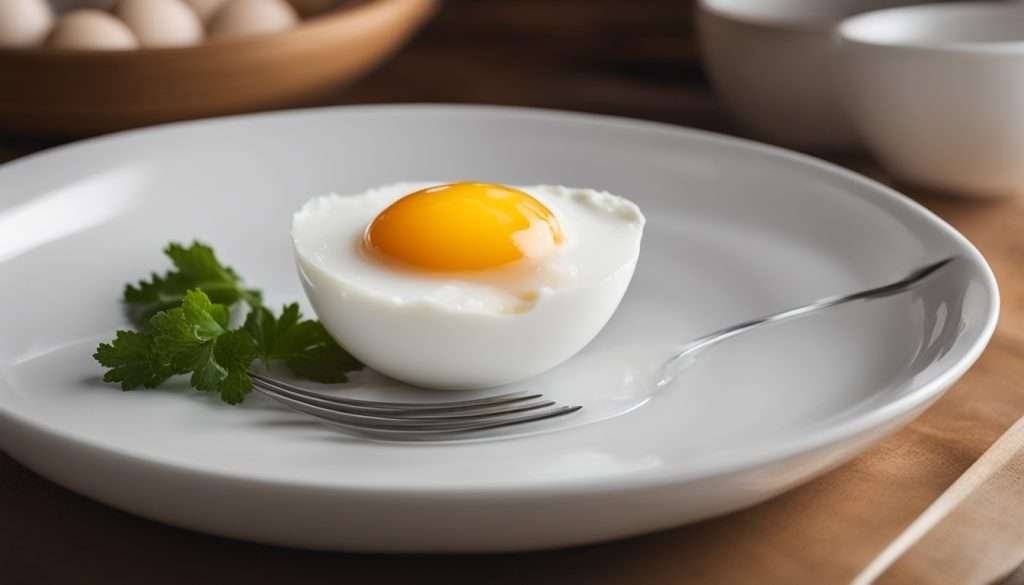
“Feeding cats a balanced, species-appropriate diet is crucial for their overall health and well-being. While cooked eggs can be a tasty treat, they should only be offered in moderation and as part of a well-rounded feeding plan.”
In conclusion, cooked eggs can be a safe and nutritious treat for cats if done right. Focus on proper cooking, skip the seasonings and fats, and talk to a vet. This way, your cat can enjoy eggs safely and healthily.
Can Cats Eat Raw Egg?
Feeding eggs to cats comes with both risks and benefits. Cooked eggs can be a great addition to a cat’s diet. But, it’s best to avoid raw eggs because they carry a higher risk of salmonella and other bacterial infections.
Risks of Salmonella and Other Bacterial Infections
Raw eggs can have harmful bacteria that can make cats and people sick. Salmonella is a big concern, affecting about 1.35 million people in the U.S. each year. Cats are just as likely to get these infections as humans, leading to stomach problems, fever, and worse health issues.
To keep cats safe, it’s best to give them cooked eggs. Cooking kills harmful pathogens, making cooked eggs a safer choice for cats.
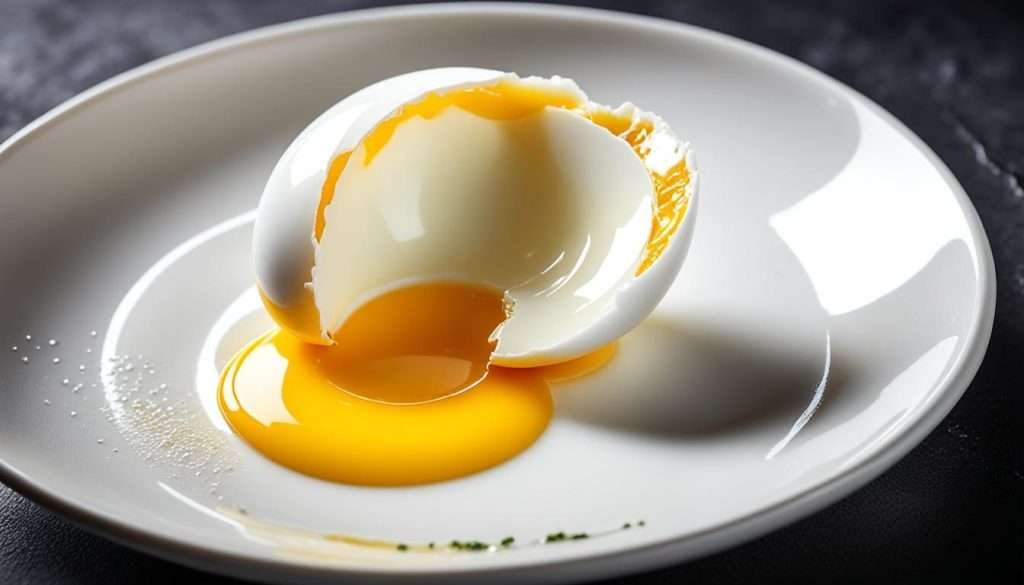
Raw egg whites can also affect how cats absorb important vitamins and minerals. This could lead to nutritional shortages in cats. Always talk to a vet before adding raw eggs to your cat’s diet.
In conclusion, eggs are good for cats because they’re full of protein, vitamins, and minerals. But, it’s safer to skip raw eggs. Cooked eggs, without extra seasonings or fats, are a better choice for your cat.
Egg Whites vs. Egg Yolks: Which is Better for Cats?
Feeding eggs to our cats is a big decision. We must think about the different nutrients in egg whites and yolks. Cats need a special diet because they are obligate carnivores. This means they need meat to stay healthy.
Egg whites are lean and high in protein, making them great for cats. Egg yolks, on the other hand, are fattier. Feeding cats too many yolks can lead to weight gain and health problems.
The University of Missouri says cooked eggs are safe for cats. But, we should avoid raw eggs because they can make cats sick with salmonella. Raw eggs also have avidin, which can affect how well cats absorb biotin.
| Nutrient | Egg Whites | Egg Yolks |
|---|---|---|
| Protein | High | Moderate |
| Fat | Low | High |
| Calories | 17 per egg white | 55 per egg yolk |
Treats, like eggs, should not make up more than 10% of a cat’s daily calories. Eggs should not be more than 10% of their daily food. Always talk to a vet to find out how much is right for your cat.
In conclusion, egg whites might be the better choice for cats. They offer lean protein without the yolks’ high fat. Always choose cooked eggs and check with your vet to make sure your cat is getting what it needs.
Feeding Eggs to Kittens: A Nutritious Treat
Kittens can enjoy eggs as a treat, but it’s important to watch the amount they eat. A vet should guide you on how much to give, based on the kitten’s age, size, and health. It’s crucial to keep the amount small to avoid too many calories or fat.
Determining Safe Portion Sizes for Kittens
Feeding eggs to kittens means watching the size of the portions. Kittens need different nutrients than adult cats and are still growing. Giving them too much egg can cause weight gain and health problems.
Experts say kittens should get a small amount of cooked egg, about 1 to 2 teaspoons, as a special treat. This size helps them get the egg’s protein and nutrients without eating too many calories. Always watch how your kitten reacts to the egg and adjust the amount if needed.
It’s also key to add eggs to kittens’ diets slowly, starting with a little bit and watching for any signs of upset stomach or allergies. If your kitten vomits, has diarrhea, or has other stomach issues, stop giving them eggs and talk to your vet.
Deciding to feed eggs to kittens should be talked over with your vet. They can give advice based on your kitten’s specific needs and health. By listening to their advice and being careful with the amount, you can give your kitten eggs as a fun and healthy treat sometimes.
Moderation is Key: How Many Eggs Can Cats Eat?
Feeding eggs to cats should be done with care. Experts suggest giving cats no more than half an egg daily. This is part of a balanced cat diet. Eating too many eggs can cause weight gain, stomach problems, and nutritional imbalances.
Always talk to a veterinary guidance before changing your cat’s diet, like adding eggs or other human foods. Vets can give advice on the right amount of eggs and how they fit into a cat’s feline nutrition.
Consulting with a Veterinarian for Dietary Guidance
Eggs can be good for cats, but adding them right is important. Vets know how often and how much to give based on your cat’s age, activity, and health.
Working with a vet ensures your cat’s egg consumption is right for their health. This is the best way to find the right egg portion sizes for your cat.
“Just one boiled egg is roughly equivalent to eight eggs for humans. Cats have much lower caloric requirements compared to humans, so it’s important to be cautious with portion control when feeding eggs.”
Moderation is key when feeding eggs to cats. With a vet’s help, you can add this nutritious food to your cat’s diet safely.
Conclusion
Eggs can be good for cats as a supplement. They offer high-quality protein and important nutrients like amino acids, taurine, vitamins, and minerals. But, it’s key to think about both the good and bad sides of giving eggs to cats.
Cooked eggs, like scrambled or boiled, are the safest choice. Raw eggs can have salmonella and other harmful bacteria.
When giving eggs to cats, remember to do it in moderation. Eggs should be a rare treat, not a main part of their diet. They should not make up more than 10% of a cat’s daily calories. Always talk to a vet before adding new foods, including eggs, to a cat’s diet to make sure it’s safe and right for them.
With the right care and advice, eggs can be a tasty and healthy part of a cat’s diet. Knowing the good and bad about eggs helps cat owners make smart choices for their pets.
FAQ
Can cats eat raw eggs?
Can cats eat cooked eggs?
What are the benefits and risks of feeding eggs to cats?
Should cats eat egg whites or egg yolks?
How many eggs can cats eat?
Can kittens eat eggs?
Source Links
- Can Cats Eat Eggs? Learn if Eggs Are Safe for Cats.
- Can Cats Eat Eggs? Vet Approved Facts & FAQ – Catster
- Can Cats Eat Eggs?
- Can Cats Eat Eggs?
- Can Cats Eat Eggs? Nutritional Superfood Guide
- Can Cats Eat Eggs: Raw, Boiled, Scrambled Eggs for Cats
- Can Cats Eat Eggs?
- Can Cats Eat Eggs?
- Can Cats Eat Eggs? | Hill’s Pet
- Can Cats Eat Eggs? Are They Safe & Good for Cats? | Purina
- Can Cats Eat Eggs?
- Can Cats Eat Eggs? Here’s Everything You Need to Know
- Can Cats Eat Eggs? Raw or Cooked | Agria Pet Insurance
- Can Cats Have Raw Eggs?
- Can Cats Eat Raw Eggs? Vet-Reviewed Health & Safety Guide – Catster
- Can Cats Eat Eggs? | Great Pet Care
- Can a Cat Eat Eggs in Oxford, MS | Bottletree Animal Hospital
- Can Cats Eat Eggs? A Guide to Feline Nutrition and Dietary Safety
- Can Cats Eat Raw Eggs? Vet-Reviewed Health & Safety Guide – Catster
- Can Cats Eat Eggs? Here’s What To Know
- Can Cats Eat Eggs? A Comprehensive Guide – Animal Gator
- Cats and raw eggs?

